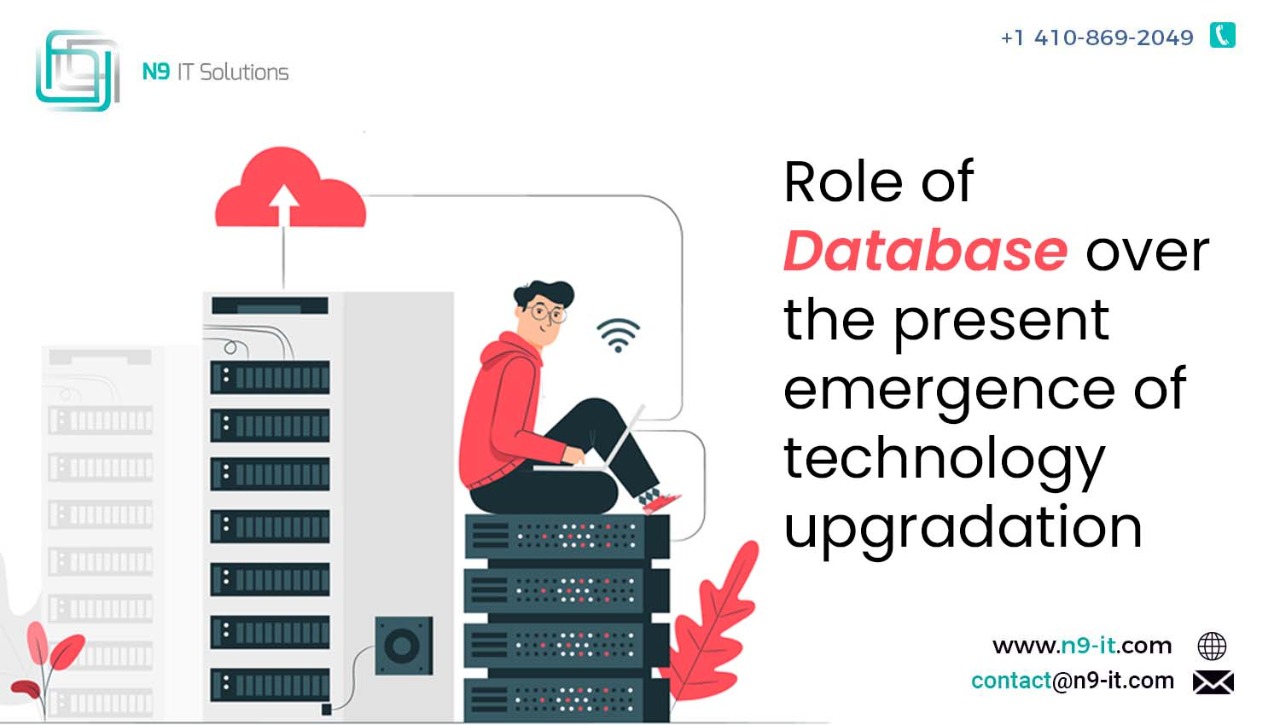Role of Database over the present emergence of technology upgradation
A database is a gathering of structured information that supports electronic storage, retrieval, modification, and deletion of data in a computer system. Small database can be stored on a file system and large databases hosted on cloud storage. The Database Management System (DBMS) is the software that interacts with end users, applications and database itself to capture and analyze the date. In short, DBMS controls the database.
In an easy way to understand, an online telephone directory uses a database to store data of people, phone numbers, and other contact details.
Database plays a vital role in the Information technology. It helps to organize the data systematically in a way that we could retrieve the information easily. It handles the large data set and manages to store the data in a hierarchical way. It also helps to encrypt and decrypt the sensitive data.
Developers now more than ever have to meet and exceed market demands by quickly changing their application. In addition, once the application developed according to the current market needs, comes the second challenge: the scalability of the application. The developer does not know how big the application must scale but is required to design the system in such a fashion that it can scale on demand. The development agility comes from leveraging skills that programmers have developed over the years: SQL. Therefore, they need to learn the scalability and other new data management techniques that NoSQL systems have introduced. A database platform like one we have built at Couchbase brings the benefit of SQL programming and flexible schema, as well as the scale-out architecture of NoSQL systems.
Understanding these new systems and developing their skills in these areas will enable them to develop their application quickly and scale that application on demand.
Design and Development Strategies to Provide Better Accessibility and Animation Using UX / UI
Types of Database and its functionality in the digital era
It is important to pick the right type of database to store and manage the data in an organization. Below are the information in detail explained about few type of database and its core purpose.
Relational Databases
The Relational Database stores the information in rows and columns. The Relational Database Management System (RDBMS) is the program that allows creating, updating, and administering a relational database. Structured Query Language (SQL) is the most common language for creating, updating, and deleting the data. Relational databases work well with structured data.
Example: Microsoft SQL Server, Oracle Database, MySQL, IBM Db2, PostgreSql
NoSQL Databases
NoSQL Databases helps to store the unstructured data. The advantage of NoSQL Databases is we can modify the data without affecting applications that using the database.
Example: Apache Cassandra,MongoDB, CouchDB, and CouchBase.
Cloud Databases
Cloud Databases specially designed for databases that run in the cloud. It is known for its flexibility, scalability, and availability. Since it comes from SaaS Model, it cost low-maintenance.
Example: Microsoft Azure SQL Database, Amazon Relational Database Service, Oracle Autonomous Database.
Columnar Databases
These type of Databases store data in column rather than row. They used in data warehouse for handling analytical queries. When you are querying column database, you can filter the column from which you want to retrieve the information.
Examples: Google BigQuery, Cassandra, HBase, MariaDB, Azure SQL Data Warehouse
Wide Column Databases
Wide Column databases are schema-agnostic. Data are stores in column families rather than rows and columns. These type of Databases supports real-time big data applications. It can handle petabytes.
Examples: BigTable, Apache Cassandra and Scylla
Object-oriented Databases
It is based on object-oriented programming., so data and its attributes are tied together as an object. Object-oriented databases are managed by object-oriented database management systems (OODBMS). These databases work well with object-oriented programming languages, such as C++ and Java.
Examples: Wakanda, ObjectStore
Key- value Databases
Key-value databases save data as a group of key-value pairs made up of two data items each. It can handle high volumes of traffic and it is scalable. These type of databases are often used for session management for web applications, online games, and online shopping cart.
Examples: Amazon DynamoDB, Redis
Conclusion
Today’s world is ruled by data. Everything is data. In advanced technology, we store all the data’s. We store all the information in an electronic system. It helps in large-scale industries to store big data and helps in organizing the data, so that we can retrieve the information easily. It is cost-effective as well as time saving. Every company needs real-time data to thrive in this race. It is costly to invest your efforts in a single system. It reduces the security risk by encrypting the document. It also helps to increase the productivity in an organization. However, you can incorporate systems to data management to scale up your business. Project managers are expecting a higher return and lower costs on technology projects. For example,Cloud Computing plays vital role in low management. Let us tune ourselves with the latest technology in Data Management.
Scope @ N9 IT Solutions:
- N9 IT Solutions is a leading IT development and consulting firm providing a broad array ofcustomized solutions to clients throughout the United States.
- It got established primarily with an aim to provide consulting and IT services in today’sdynamic environment.
- N9 IT also offers consulting services in many emerging areas like Java/J2ee, CloudComputing, Database Solutions, DevOps, ERP, Mobility, Big Data, ApplicationDevelopment, Infrastructure Managed Services, Quality Assurance and Testing.
WE ARE HIRING ALL RECENT GRADUATES
Share your profile to resumes@n9-it.com

